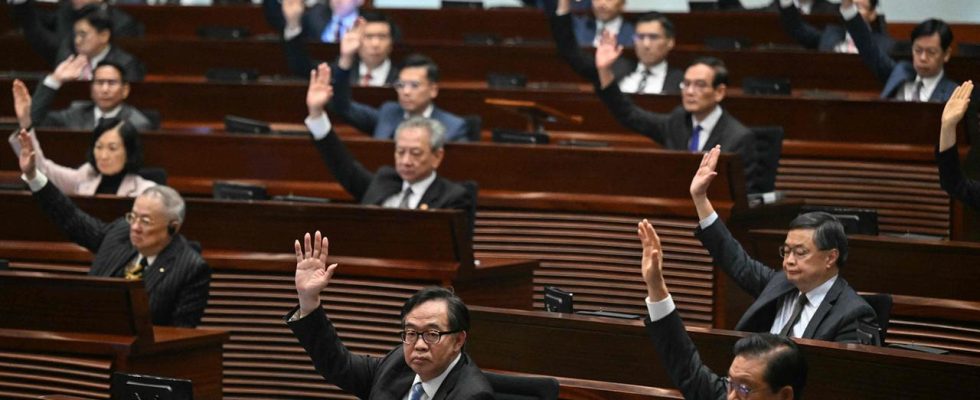Now the leadership in Hong Kong, loyal to Beijing, can take even tougher action against critical voices: a new law provides for higher penalties and gives the police more power. Human rights activists express sharp criticism.
The result is clear: Hong Kong’s legislative assembly has unanimously passed a new “security law”. It is considered controversial because it gives the political leadership additional powers to take action against critical voices.
After pro-democracy protests in 2019, a first “national security law” had already been introduced under pressure from the Chinese government, which de facto silenced the democracy movement. The new law now builds on this. Only two weeks after it was first submitted, it was passed in an urgent procedure: the head of government of the Chinese special administrative region, John Lee, had called on MPs to get it through the Legislative Council as quickly as possible.
Penalties have been significantly increased
The law imposes harsh penalties for a range of actions deemed to pose a threat to national security. Charges such as high treason and rebellion against the state carry life imprisonment. Anyone who owns publications calling for Hong Kong’s independence from China can also expect to be sentenced to several years in prison. In addition, in certain cases the police are given more power to investigate or arrest suspects.
Lee announced after the meeting that the law would take effect Saturday. The government had to introduce the law in accordance with the constitution but has so far failed to do so. There was no doubt about the approval, as the 90 members of the Legislative Council are considered to be predominantly loyal to Beijing. There were almost no protests against the draft in advance.
Massive cut in Hong Kong’s autonomy
Critics fear further restrictions on freedom of expression. Human rights organizations see the new law as a means of suppressing the opposition. The forerunner of 2020 was already considered a massive cut in the autonomy of the former British crown colony, which was promised to it for at least 50 years when it was handed over to China in 1997 according to the “one country – two systems” principle.
Eva Lamby-Schmitt, ARD Shanghai, tagesschau, March 19, 2024 3:03 p.m

